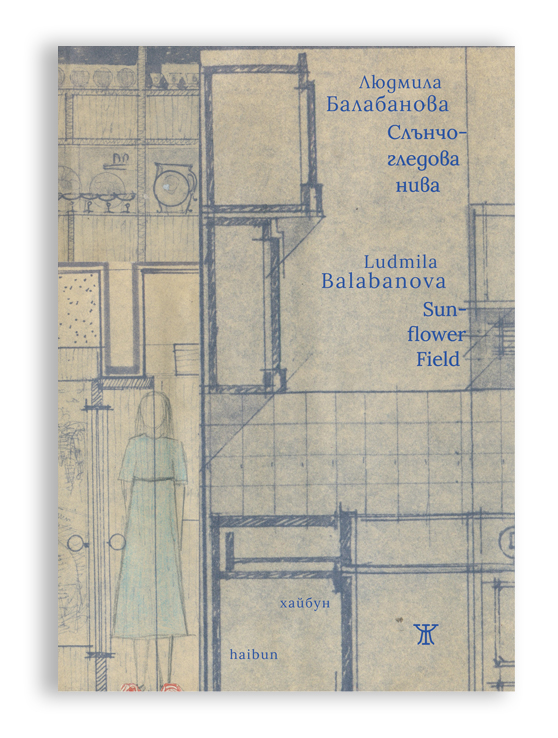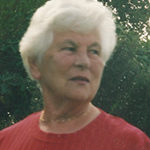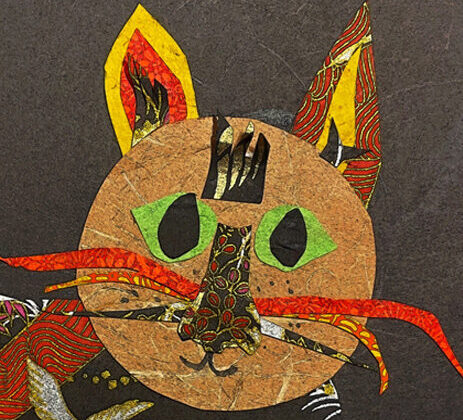
Book Review: Sunflower Field
By Ludmila Balabanova Published by Zhanet Plovdiv, Bulgaria 2019, Paperback, 68 pp. ISBN: 978-619-186-496-6 Ordering Information: E-mail the Publisher
Reviewed by Patricia Prime
Sunflower Field is a blessing of a book. The title says it all: One can imagine the field in summer, full of gorgeous yellow flowers, and the book is very similar. It is full of gorgeous, sensual, but vivid and memorable poems.
The collection features 21 haibun in both Bulgarian and English, interspersed with hand-drawn illustrations of primarily isolated and featureless figures in contemporary dress. (The drawings don’t necessarily relate to individual haibun, but they do create an added dimension that deepens the reading experience.) The book’s introduction, titled simply “Haibun,” orients readers to the haibun form:
The connection between prose and haiku is particularly important. The poem is not an illustration of prose….Very often, the link has been shifted so much that at first glance it seems to be quite detached from the narrative text. The aim is to stimulate the imagination of the reader and to find deeper relationships and complex connections. (p. 8)
These life-affirming haibun are fired by belief in the human and the spiritual at a time when much of the world feels unreal and inhuman. The simple poem “Distances” exemplifies the tiny specks that are humanity afloat in the vast cosmos:
between the stars invisible stars
- The deep starry sky. We look at it without distinguishing stars and planets, nearby and distant suns. Without knowing if the barely visible stars are very small or huge, but very distant. Or even dead. Somewhere among all that, we are, with a small and Insignificant but close star.
sunflower field
the sun rooted
in the sky (p. 11)
Many of the haibun are highly personal and moving. “Chocolate” is a poem about the writer’s mother who “worked in a chocolate factory” but wasn’t allowed to take home samples for her family.
- My mother worked in a chocolate factory, but we didn’t have enough money for sweets and she wasn’t allowed to take home samples for her family. One Christmas, the employees’ children were allowed to visit and eat as much as they want. I remember the huge bowls filled with chocolate syrup, the sharp smell coming from the ovens, the enormous heap of packed chocolate bars. Overwhelmed by that “horn of plenty”, I couldn’t eat even one piece.
rocky mountain
even a single tree
is a forest (p. 19)
Quietly understated images give the reader a powerful connection to the poet’s feelings. In the simplest possible language, the haibun deliver a wealth of emotional sensitivity, as we see in “Without a Watch”:
- The short hand of my watch becomes broken. The long hand races in vain. It’s not able to measure time by itself.
- The sun goes down. The sky darkens. The evening star rises.
summer night
the firefly's seconds
shine (p. 41)
“Parting” is another “simple” haibun that, in only two sentences, offers the solace of recognition.
- A friend of mine tells me about her divorce. The saddest thing she says is dividing what was till yesterday “ours” to “ours” and “mine.”
sharing the moon
the light part for you
the dark foe me (p. 31)
These are poems of great personal force that help us to stay alive to the world and stay true to ourselves. (It’s easy to see why the book received both a Touchstone Book Award from the Haiku Foundation and a Merit Book Award for Haibun from the Haiku Society of America). Sunflower Field is a delightful collection whose simple images reward close reading.
For writing insights from Ludmila Balabanova, click here.
About the Author

Patricia Prime is co-editor of the NZ haiku journal Kokako. She is the articles editor for Contemporary Haibun Online and also is a reviewer for Atlas Poetica, Takahe, and other journals.
